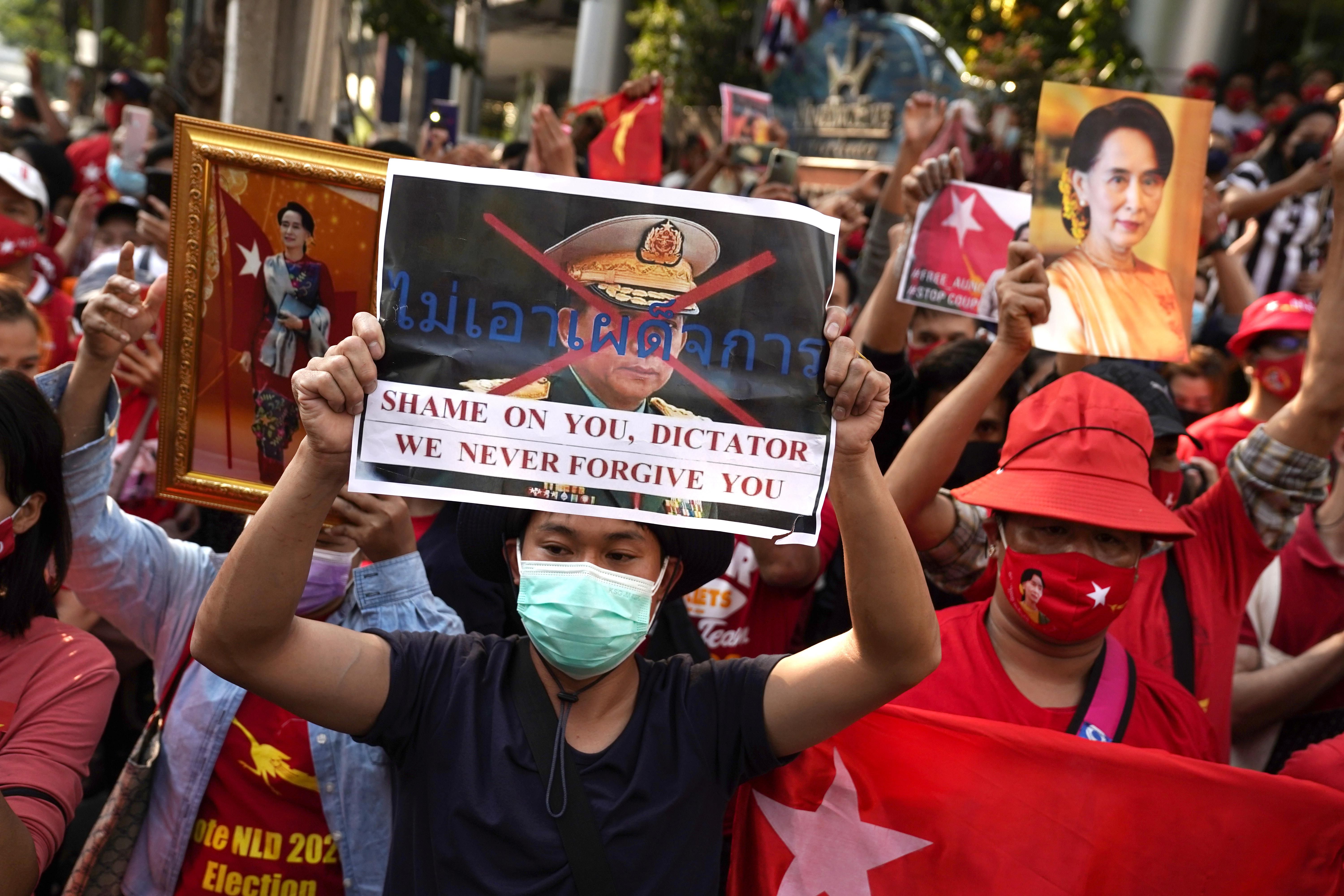After weeks of saber-rattling, Myanmar's military took power on Monday. Aung San Suu Kyi and the entire leadership of her incumbent National League for Democracy party are now under arrest. The coup ends a five-year democratic experiment in a country where generals are used to calling the shots.
How did we get here, why was democracy so short-lived, and what happens next?
Myanmar has a long history of military rule since it became independent from the UK in 1948. The most recent previous coup was in 1990, when the NLD won a landslide election victory but the generals refused to accept the results and placed Suu Kyi under long-term house arrest. Suu Kyi's peaceful struggle for democracy won her the 1991 Nobel Peace Prize, and cast a global spotlight on this otherwise obscure Southeast Asian country until she was freed in 2010.
With its popularity in a death spiral thanks to an economic collapse stemming from half a century of international isolation, the junta (grudgingly) agreed to hold democratic elections in 2015. But there was a catch: the constitution barred Suu Kyi from being president or prime minister, and the military would retain a quarter of all seats in parliament and top security portfolios in the cabinet with no civilian oversight.
After the NLD swept the polls in 2015, Myanmar welcomed a surge of international development aid and investment. This massive influx of foreign cash helped Suu Kyi, as the de facto leader of the nation, navigate an often-testy relationship with the military, which rejected all attempts to curb its power by reforming the constitution.
Four years later, Suu Kyi shocked Western donors by defending the generals, indicted for genocide by the International Criminal Court over their brutal 2017 military campaign against the Muslim Rohingya people. In what was described by the UN as "textbook ethnic cleansing," the army — egged on by radical Buddhist monks on Facebook — burned entire villages and forced more than 700,000 Rohingya to flee to neighboring Bangladesh. In response, foreign investment evaporated, and Suu Kyi's international reputation was forever tarnished.
But as Suu Kyi's star faded in the West, it became brighter at home, where a majority of the population has long viewed the Rohingya as invaders. Riding on her popularity, the NLD won big in last November's election, intensifying tensions between the civilian government and the army.
When the results showed a military-backed opposition party won a dismal 7 percent of the vote, the generals cried election fraud, threatening to suspend the constitution if their claims were not investigated. More importantly, their showing was so poor that the military feared it was losing its grip on power — especially the man on top.
The coup reverses the generals' declining influence in one fell swoop. Myanmar's new leader, Senior General Min Aung Hlaing, was set to retire this year — now he's guaranteed to remain in charge at least until 2022, and perhaps (much) longer.
The junta has promised elections in one year, but will likely find some reason to delay. Even if the vote goes forward, the military will not accept an outcome short of victory for its allies. Meanwhile, the economy will be crippled by fresh international sanctions, and Myanmar itself will again become the pariah it was just over a decade ago.
Of Myanmar's few friends, China is the most important as its only reliable ally and top trading partner. While the new regime is widely expected to favor closer ties with Beijing, China is happy to oblige as long as Naypidaw follows through on the construction of a billion-dollar oil and gas pipeline for China to gain access to the Indian Ocean via a new port... located in Rakhine state, where most Rohingya live.
But it'll be a tough balancing act for the generals, who need China's cash and diplomatic support to offset Western sanctions but are wary of Myanmar (again) becoming a Chinese client state.